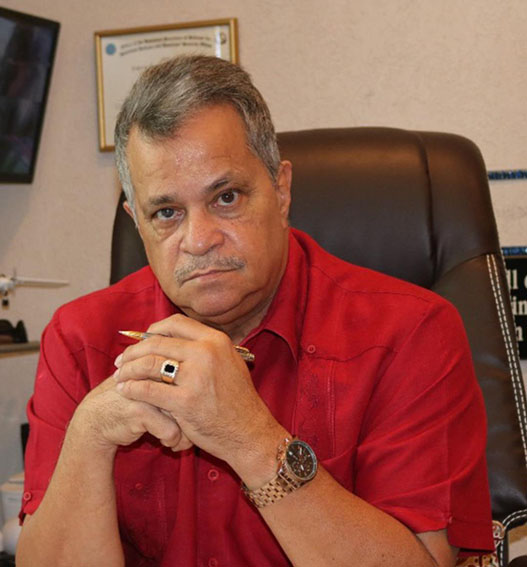Foreign investments in sectors that significantly exploit Guyana’s non-renewable resources should, “as a matter of course,” leave behind Guyana’s significant “legacy projects” that provide some measure of meaningful compensation for the fact that what they take away are wasting resources from which the country cannot hope to benefit again, a senior private sector functionary has told the Stabroek Business.
And Chief Executive Officer of Roraima Airways Inc. Captain Gerry Gouveia, who served in senior positions in the private sector at different points in time has said that he believes that it is the government’s responsibility to ensure that rules and regulations are ‘firmly in place” to ensure that strict contractual arrangements are in place that allow for those legacy projects to provide employment and to “otherwise bring social and economic benefits to the country. “Where wasting and non – renewable like gold, oil and forestry resources sectors are involved agreements ought to be in place to ensure that legacy projects are in place to ensure that the country as a whole receives some measure of compensation for the fact that we are unlikely ever again to benefit from the resources that are removed once the natural life of the project is over.
Insisting that what the country gets out of these investments must go beyond “taxes, salaries and fees of one kind or another”, Gouveia says that government must move to create within the Ministry of Natural Resources a Department charged with the responsibility for crafting a thorough and effective “legacy projects policy so that we do not find ourselves dealing with these things on a case by case basis.”
However, Gouveia told Stabroek Business that issues like local content and legacy projects must also take account of the perspective of the investor. “The last thing we need is to become saddled with a reputation for favouring draconian agreements that bind potential investors to legacy dimensions in contracts that are unreasonable. I believe that it is possible to derive legacy arrangements from dialogue with investors and, yes, I believe that we can actually have ‘win win’ situations deriving from such discourses,” Gouveia added.
And according to the Roraima CEO the failure to persuade the Canadian mining company Omai Gold Mines Ltd. to utilize the Tumatumari Falls as the power source for its gold mining operations amounted to “a missed opportunity” for the creation of a legacy project that would have contributed significantly to the social and economic upgrading of sections of the interior of Guyana. However, he argued that by providing training for Guyanese who had since moved to Suriname and other places to work in the gold mining industry and some of whom were now returning home to work with major mining companies, the Canadian company had created its own brand of legacy project. “In a sense we can even cite Roraima Airways as a legacy project since it was on account of Omai’s operations in Guyana that Roraima came into being in the first place,” Gouveia said.
Meanwhile, Gouveia told Stabroek Business that while it was “perfectly understandable” that a vigilant Guyanese population would want to do its due diligence on the returns that Guyana stood to receive from revenues earned from oil and gas, it was “less than desirable” that the situation degenerate into ExxonMobil bashing. “Whatever has to be said ought to be said within the paradigm of the agreement that we have with ExxonMobil,” Gouveia said.






